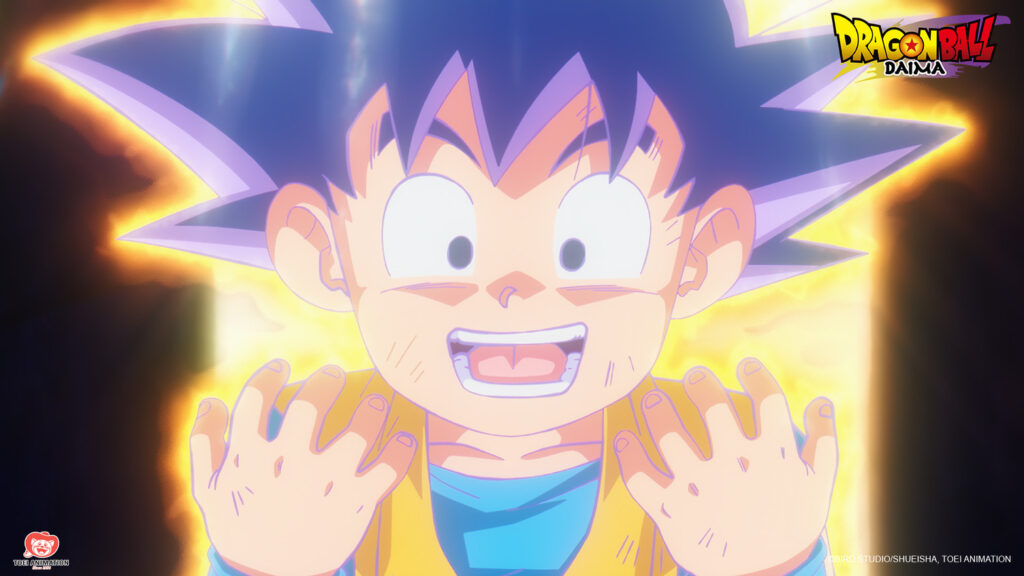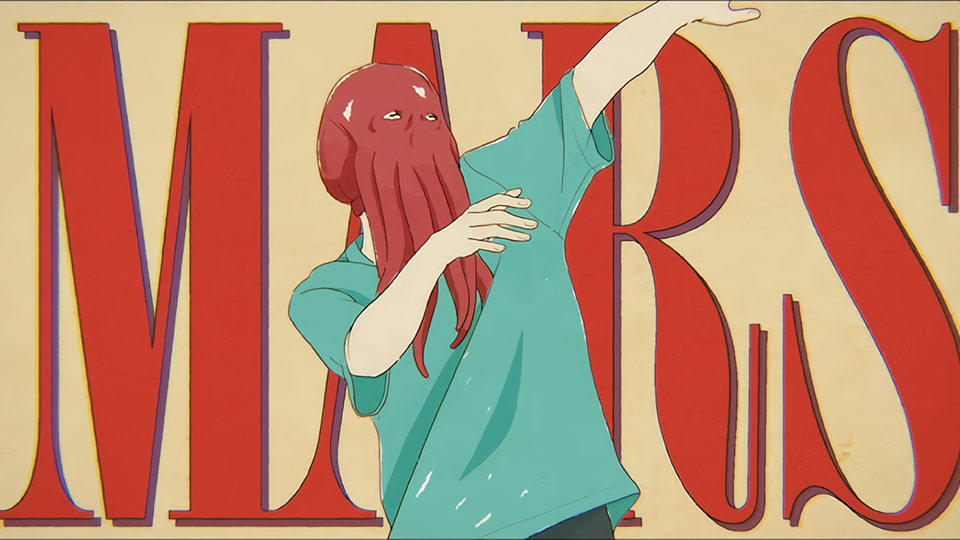With their catchy melodies, driving rock grooves, and inspirational messages of hope in every song, ONE OK ROCK has been spreading the magic of Japan’s music to the world for almost 20 years. The universal appeal of their powerful songs has seen them grow not only to one of Japan’s biggest rock acts, but also one of the must see acts around the world. Even if you haven’t heard of the band before, you’ve probably heard their music in Sonic Frontiers , Beyblade X , or many a Warped Tour compilation. Frontman Takahiro Moriuchi, aka Taka, knows his journey with the band often takes place in parallel with the rise of anime globally. I was able to catch up with Taka to talk about ONE OK ROCK’s new album Detox , becoming a bigger anime fan thanks to his American friends, and inspiration he gets from the hero’s journey in the medium’s biggest hits. Detox has been out for a couple months at this point. What's the reception been like? Takahiro Moriuchi : It's been great! Actually, we just finished a South American tour and it was so much bigger than the last time we were there. The last South American tour was like six-seven years ago, and we were playing much smaller venues then. This time we were playing almost all arena shows and the people were really freaking out. So yeah, I had really good vibes over there. I'm sure it's going to be the same in this upcoming North American tour as well. Taka : Yeah, I'm pretty excited! You've been making music for so long. How do you keep your albums fresh? Especially going into Detox , did you bring a new approach, or try anything new? Taka : We've been touring outside of Japan, performing, and making albums for almost 10 years now. This time, we really wanted to bring the core ONE OK ROCK sound back to the album. Also, the lyrics are more political on this album, which will mean a lot of future ONE OK ROCK albums. After this album, we want to keep putting in more emotion into our music moving forward. You definitely nailed that on Detox ! How has your process changed over the course of your career? Have your influences changed at all? Taka : I think dialing in our sound is more simple than before. We will start with a huge theme that we want to write around then build up everything around it. That’s when we narrow down on the type of music we want to make alongside that theme, and this time that was hard rock and roll. At this point in our careers it feels very simple. The recording too feels very organic. The words start to flow once we settle on everything else. For our themes, we really like to build around themes of never giving up and always moving forward, but to tell that story we always like to try to experiment with different sounds and genres and put that into our music. So when I’m listening to or inspired by other types of music, I try to find the “rock” in whatever it is and channel it until it can sound uniquely like us. That can be pretty challenging. RELATED: Origami Angel's Pat Doherty on Bringing Vegeta Energy to the Drums Do you find it difficult to write lyrics in another language? Taka : So my pronunciation has gotten a lot better over the 10 years that I’ve been doing it! In the beginning, it was very hard and I’ve gradually been getting better. The way of saying things in America and the way of doing things is obviously very different. So when I’m in sessions, it's with all these different foreigners and people in the room, and when I want to say something in Japanese, I sort of have to explain what I mean and the theme I'm trying to convey to people that might have never have heard something like that before. Or at least never heard that way of saying it before. So that is half the battle. But then, once everyone gets on the same page, we all figure out the best way to say it, I’m able to pronounce it and do it a lot better. That's a really unique challenge for writing music! Taka : I know! We're here to talk about anime, of course. What was it like to grow up with anime all around you? Do you think that subconsciously ends up in your music at all? Taka : So I have sort of a unique perspective on it, because I actually didn't watch a lot of anime growing up. Hardly any. And then once I started coming to America more often and getting American friends, my American friends are the ones that turned me on to anime. I started watching a few, and then I was like, “Oh, wow! Anime is actually dope.” So my journey is really the opposite way than you’d expect, actually. That is an amazing pathway to anime! Shout out to your friends for being such hardcore anime fans, they wouldn't let you escape. Taka : You guys introduced me to how great anime really is. So now I’m very into it. What are some of the ones that you've watched as you’ve gotten more into it? Taka : So there's a lot. More than the classics, I’ve really been getting into what is big right now. So things like Demon Slayer: Kimetsu no Yaiba , JUJUTSU KAISEN , Chainsaw Man , The Apothecary Diaries . I really love how unique the storytelling is in anime. I’m always curious how American people understand anime when the story is very Japanese. For Japanese people growing up, we’ve seen Western movies ever since we were little, so we understand “how” to watch it. But I’ve noticed that international people that like anime have almost a certain level of high intelligence. They have to watch all this stuff with subtitles coming from a different culture but they're still able to take it all in and understand it. So I’ve noticed that all of my friends that like anime kind of have a high level of understanding and intelligence. I agree. All the people that watch anime are smart! Taka : Haha totally! RELATED: Periphery's Misha Mansoor on His Love of Yakitate!! Japan and The Prince of Tennis Do you hear music in your head when you're watching JUJUTSU KAISEN or Demon Slayer: Kimetsu no Yaiba or any of the other shows you’ve been watching? Taka : Yeah, a lot actually! There's a whole genre of music called anisong, which is very specific. From my point of view, not growing up as an avid anime watcher, when I listen to those songs I’m like, “Oh, actually, you know, I think it'd be cool if you did the song this way, or in a different way.” I can’t help but see it from a different approach. It’s like you're remixing it live as you're watching it. Taka : Exactly. You've also had a song in the Beyblade X anime. What was that experience like? Was it before your American friends got you into anime? And do you now have an even greater respect for being in it now that you're a bigger fan? Taka : So I wasn't familiar with Beyblade at all when they first asked me to do it. I’d heard about it of course and that’s when I really checked it out. I was really honored that they thought of us and they asked us to be in that anime. While not being an anisong band, have you noticed a lot of anime fans at your concerts all around the world? Taka : A while back we also did a theme song for a live-action adaptation of an anime. Even that long ago, that was the first time we really mixed really hard rock with a live-action adaptation from manga. From that, we felt a lot of people gravitate toward us and from there we’re noticing more and more of a crossover. But a lot of other bands, you know, like you also be, and some other ones that do a lot of anime songs. For a lot of other bands that have done a lot of songs for anime, the fanbase can be a lot more focused. Since we haven’t done a lot of songs for anime I think it's very focused. But we actually haven't done a lot of anime, so while there are a lot of people that have come from that, it’s not a constant source of new fans. It’s nice to have people come in through those songs and get exposed to the rest of our library of songs. There are a lot of fans of anime that are also fans of hard rock music. Why do you think that might be? Taka : So in terms of the people that like anime but also like Japanese rock and heavy music, I feel like it's becoming a part of the entire culture. A lot of people when they figure out something from Japanese culture that's had a lot of influence in America recently, like they’ll go to eat ramen, and they’ll really like ramen. And they maybe want to check out sushi as well. And they figure out all these things about Japanese culture. For me growing up, I was looking the other direction, toward America, and I looked up to it and there was so much about it that I loved. So to see a culture like that embracing Japan so much, and having it be like a part of their life, and having it influence a lot of things for me, I’m really proud as someone coming from that culture. I’m happy that a lot of people are embracing it. I have to ask, what is your favorite anime of all time? Taka : Hmm this is so tough. There's a very common theme in anime of there being like a very strong central main character but then there's something that he can't do on his own, and then you're able to do it with your friends together, and win together. Whether it be in America with the superhero stuff like Marvel and The Avengers or with a lot of the Shonen Jump stuff like One Piece . It's about doing something together with your friends, attacking the Big Bad, whatever it is, and then attaining that goal. I love a lot of anime that have that theme. Teamwork is a really strong part of Japanese culture so putting that into it and being able to see it come to life through stories moves me every time I see it. As a member of a band and doing that with your friends, you’ve made that story one you can live in too. Taka : That’s definitely true! But to answer your question, if I had to give one specific anime that I like above all else, it’s JUJUTSU KAISEN . If you could take any character from any anime you've ever seen and add them to your band, who would it be, and what would they do? Taka : This is so tough! We have such a great team right now, whether it be the band members, but also the American side and the Japanese side. I already have the dream team with me. You can catch ONE OK ROCK on their North American tour here . Listen to Detox here . Follow Taka here . Taka’s answers translated by Jamil Kazmi.


